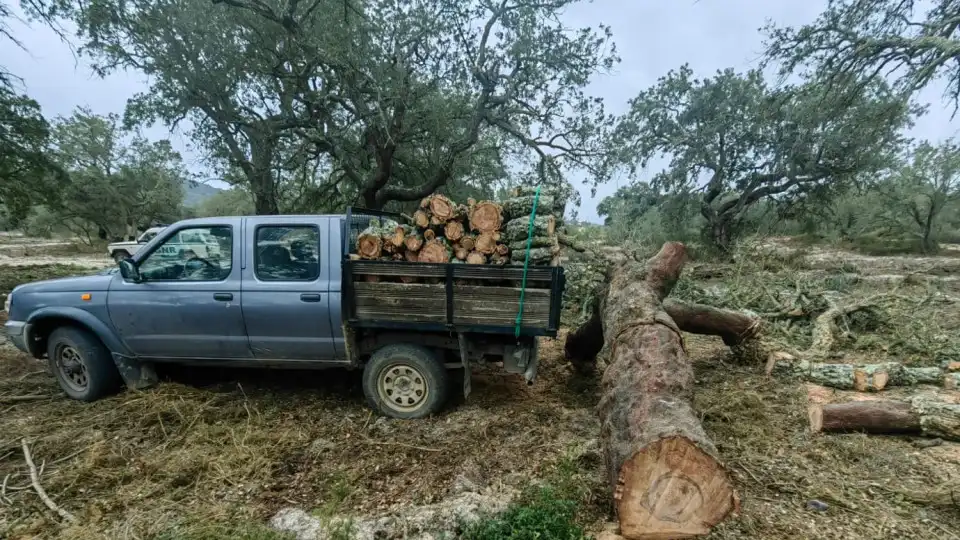The Intermunicipal Community (CIM) of Médio Tejo today defended the importance of “speeding up the implementation of EU funds” and “giving content to the so-called extraordinary mechanism for anticipating Portugal 2030”, having warned of the implications for sectoral policies.
“The delay in its implementation is reflected in various areas of sectoral intervention, whether in education, civil protection or, for example, in the implementation of measures to combat climate change,” Miguel Pombeiro, executive secretary of CIM Médio Tejo, an entity that brings together 11 municipalities in the district of Santarém, told Lusa today.
He said that the Médio Tejo CIM has a “systematized” document, which is awaiting the opening of a community notice that will allow applications to be submitted, and warned of the implications of the delays that have occurred in terms of community funds, with projects “prepared” and “awaiting” to intervene in schools, civil protection and measures to combat climate change.
“There is, in fact, a systematization of investments. We are currently awaiting the negotiations for the ITI/CIM pact, which will allow the community and its municipalities to present projects in various thematic areas, and only when we conclude this process will we be sure which investments will be funded,” said Miguel Pombeiro.
Having been one of the eight Portuguese regions chosen in the European Union in 2022 to combat climate change and with an operational inter-municipal plan in place since 2019, the Médio Tejo CIM has already made some progress with investments since then, with the 2030 community framework “lagging behind” in relation to the investment measures that “urgently need to move forward”.
The Médio Tejo Intermunicipal Climate Change Adaptation Plan (PIAACMT) brings together 21 measures, which are divided into eight sectors, from Agriculture, Forestry and Fisheries, to Biodiversity, Energy and Industry, Spatial Planning and Cities, Water Resources, Human Health, Safety of People and Goods and Tourism.
“In fact, this Intermunicipal Climate Change Adaptation Plan was an important moment for identifying, municipality by municipality, the vulnerabilities, the impacts of climate change and, in essence, the systematization of an entire strategy and investment, and there are many different areas of intervention (…), said Pombeiro, noting the “critical” factor of EU funding.
“With regard to Portugal 2030, the process is clearly behind schedule. Suffice to say that Portugal 2030 refers to 2021, so we’re already in the second half of 2023 and we still don’t know exactly what our pact will be and the investments that will be funded, which means that it won’t be until we enter the fourth year of Portugal 2030 that the first major year of implementation will truly be for the municipalities, in this case 2024,” he said.
According to Pombeiro, “the same goes for school infrastructures” and the “inappropriate use of the extraordinary mechanism for bringing forward Portugal 2030”, with “constant postponements” of the notice.
“In the Médio Tejo there are municipalities that are desperate for an approved application, which is the condition for complying with the rules regarding budget and commitment, and actually being able to launch public tenders,” he said.
“At the moment there is a notice of this mechanism from 2022, which was due to end in April 2023 and which had a first amendment to extend the deadline to June 2023, which was followed by another amendment, postponing the deadline to August and now followed by a new extension until the end of October,” he said, in a situation that he said was “regrettable”.
According to Miguel Pombeiro, “this means that there are municipalities, such as some in the Médio Tejo, that have the maturity of their school projects to be intervened and provided for in the agreement with the ANMP [National Association of Portuguese Municipalities], which are prevented from launching the respective public tender. This is regrettable and jeopardizes the implementation of EU funds.”
The manager also said that the same situation applies to civil protection, where “there is a lot of work that has been done and agreed with the local authorities that, unfortunately, won’t be operational until 2024”, given that, he noted, “it will be almost impossible to have the CIM’s ITI [Integrated Territorial Investment] pact signed before the last quarter of this year”.
With a population of around 230,000, the Médio Tejo CIM is made up of the municipalities of Abrantes, Alcanena, Constância, Entroncamento, Ferreira do Zêzere, Mação, Ourém, Sardoal, Tomar, Torres Novas and Vila Nova da Barquinha, all in the district of Santarém.









